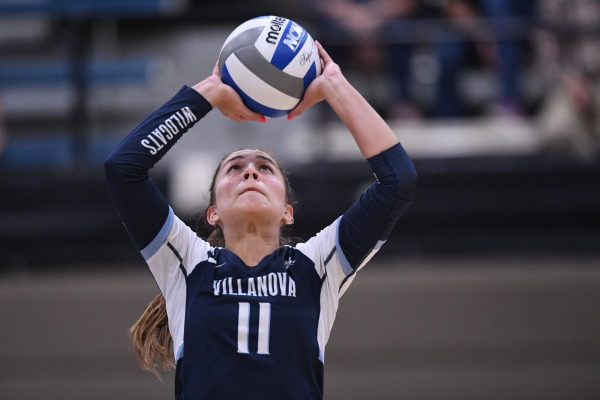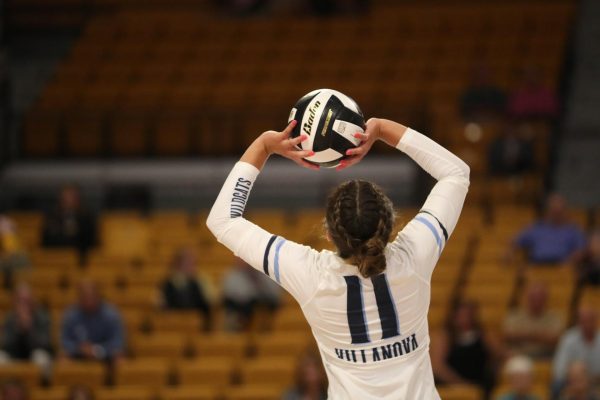Letters to the Editors
November 1, 2006
“Poly sci colleague poses challenges”
I like (and sometimes tease) Rick Eckstein because he has strongly held views, and like me, Eckstein presents them snidely and well.He has written an amusing response to my equally snide attack on Jon Kozol’s approach to education.
Unfortunately, Eckstein misunderstands what I said about Jon Kozol. I never called Kozol racist. I said that Kozol harms African American kids – not that he dislikes them. I don’t know if Jon Kozol is racist. Frankly, I don’t care. One can have great intentions, but still endorse failed policies – take President Bush in Iraq.
What I do care about is that where Kozol’s ideas have been tried, they have failed. Pouring money into dysfunctional school systems may make us feel better, but it does not help student learning, and that is something about which I care a great deal. I did a good deal of fieldwork in an inner city school system that spends more than nearby suburbs and twice as much as local Catholic schools, and nonetheless fails spectacularly.
I know that Jon Kozol does not believe in research: he said so in his talk. (I attended and urged my students to do the same.) But Rick Eckstein does believe in research, so I implore him to take up six empirical challenges.
First, give me an example in which putting more money into a dysfunctional school system has substantially improved academic performance. Second, explain how Kansas City increased per student spending by nearly 100 percent in five years without any improvement in student performance. Third, explain how Lower Merion spends $25,000 per child, but still fails to educate its disadvantaged minority. (Would $50,000 per child do it?) Fourth, explain why meta-analyses conducted by researchers like Stanford’s Eric Hanushek and Penn State’s Steve Peterson have found more money to have no more impact on student performance than stadium construction has on economic performance. (Eckstein and I agree that public subsidies for pro sports are foolish.) Fifth, explain the research finding that Catholic schools and some charter schools (like those in the KIPP and North Star networks) spending the same or less than traditional public schools nonetheless successfully educate disadvantaged children. Sixth, how we can know what works without measuring student achievement? Do we just take the superintendent’s word for it?
Notice that none of this is about feelings or perceptions, but rather about data and findings. If we fail to study the world, then we cannot do good works in the world. (Which sort of takes us back to G.W. Bush … )
Seemingly, Eckstein backs the resource theory of organizational performance: spend more, get more. By that theory, the U.S. won in Vietnam (and Iraq) since, after all, we spent more money than the opposition. Fords are better than Toyotas since they cost more to make. Villanova’s political science department must be worse than the one I left since this one spends less. My own theorizing has less to do with resources than with organization culture. Given the data, my theories better explain human organizations, and thus have more potential to help actual humans. This is actually a vital topic, and a great thing about Villanova is that debate is permitted here. My calendar is full this fall, but I propose that Rick and I develop a panel/debate on how to reform urban education. What has worked? What has failed? What has not yet been tried? As part of Freedom School, let’s do it! Could be fun! And maybe there are data out there I have not seen that will yet change my mind.
– Bob Maranto, Political Science Dept.
“Alumnae speaks out against camp out”
A camp out?! That must be a joke. I would bet that nearly half of Villanova students want season tickets. That is still significantly more than what is being offered through this “camp-out” plan. I can just see the pushing, shoving, eye-poking and scheming that will go along with that. Plus, a ten-minute notice? So basically, this system will punish anyone that does not sit at his or her computer 24-hours a day, seven days a week. In addition, according to SGA it will be first come, first serve for tickets – a policy which will only encourage campers to fight tooth and nail for position. Good idea, SGA.
While the completely random lottery system is a start, it’s still not completely fair. It doesn’t reward the true Villanova fans. Perhaps instead, Villanova could reward the fans that attend all of the ‘Nova sports, a system that would encourage campus wide support of all the athetlic teams and create an acutal “Nova Nation.” Have students swipe their cards at football games, soccer games, volleyball games, womens basketball games and so on. The University of Maryland has a similar system.
While a system like this would take more effort to work out, it would at least be a better than the ridiculous camp-out idea. I hope students stay involved in this issue and voice their opinions to SGA and to Villanova administration.
Anne Wein ’06












